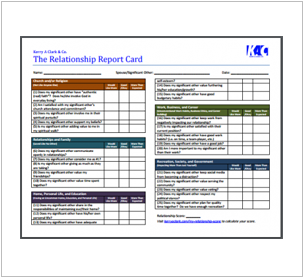The Art of An Investment Plan – Part 6
What will your child learn from how you handle your money?
STOP! You need to give this some serious thought. Regardless of what you may think, your children will imitate your money habits and principles. So, I will ask again what are you teaching your children about money? This question and how I answered it is one of the major reasons Pamela and I created a Family Plan. We wanted to learn how to improve our finances so that Tamia, our daughter, could avoid the money traps that once trapped us.
Constantly improving.
It’s easy to see that we’ve picked up some very bad money habits. For anyone who runs out of money before the month-ends (next paycheck), you’ve learned some bad money habits from somewhere. Let me name one good habit I picked up from my dad. My dad can save for anything. He has a discipline unlike anyone else when it comes to saving money. On the flip side, he also gave me a bad habit of not spending money… even when I should. My dad had/has no clue that he gave me either of those habits which isn’t ideal. The point is this, we need to pay attention to what habits we pass down because it’s these habits we are handing to our children.
In our Family Plan, Pamela and I review our “money handling” habits each year so that we can find ways to improve upon how we did the previous year so that the next year we do it even better.
Allow me to give you a few areas that are at the top of this list so that we model the best practices possible for Tamia:
- Savings. We can not spend all that we have. That’s just not wise thinking. We recently asked her this question. Tamia, “what do you do when you run out of money?” Response, I ask my parents. And what happens when we run out of money? Response, you don’t. In other words, we don’t have the option of running out of money and so we are teaching her how to not have this option either. What savings options are you giving your child?
- Spending. Everyone knows how to spend money, but do we know how to spend well. You’ve heard it said, everyone has 24 hours, but not everyone uses the 24 hours in the same way.” Some of us wish we had more time like we wish we had more money. The key to time and the key to your money are the same. You must have a plan for both. You must set priorities for both. For Tamia, we give her, her own money, but when she spends her own she puts more thought into it. She will many times change her mind on making a purchase because she’d rather maintain her balance. What are you teaching your child with how you spend?
- Cost/Value. This will be the last item I’ll discuss, but it’s an important one. We’re teaching Tamia how to assess value in order to place a cost on things. For example, let’s say she needed $200 for a school function. We help her see or know how many hours we must work to get that figure. This way she knows the value of it. As she gets older, I’ll be able to share with her that money has little value as it compares to your time. Your time is worth far more than any dollar figure you can earn. Now, that’s a lesson for another day. The point is be aware of the cost and value of your purchases. What are you teaching your children as it relates to value?
Today is Friday!
When you allow love to be at the center of your relationships, it will help you shape and even improve how you handle your resources for the sake of another, your children. Handling your money and passing down good principles is an expression of love. It says I love you enough to help your avoid the problems I’ve faced so that you never will. What are you teaching your children? Should today be the day you at least take notice. Start with a simple plan. Because your life is your business.
 is available now!
Our team has worked very hard putting it together. We designed it to help you and your family move the needle forward in making your life your business.
Find out more about the Family plan here.
is available now!
Our team has worked very hard putting it together. We designed it to help you and your family move the needle forward in making your life your business.
Find out more about the Family plan here.



Leave a Reply